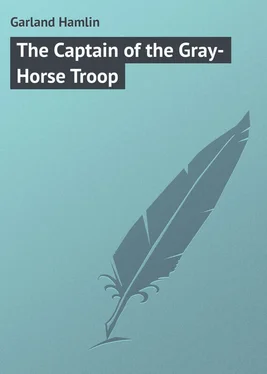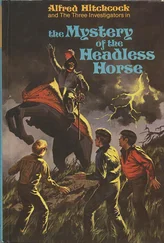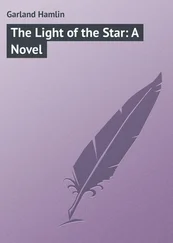Hamlin Garland - The Captain of the Gray-Horse Troop
Здесь есть возможность читать онлайн «Hamlin Garland - The Captain of the Gray-Horse Troop» — ознакомительный отрывок электронной книги совершенно бесплатно, а после прочтения отрывка купить полную версию. В некоторых случаях можно слушать аудио, скачать через торрент в формате fb2 и присутствует краткое содержание. Жанр: foreign_prose, foreign_adventure, на английском языке. Описание произведения, (предисловие) а так же отзывы посетителей доступны на портале библиотеки ЛибКат.
- Название:The Captain of the Gray-Horse Troop
- Автор:
- Жанр:
- Год:неизвестен
- ISBN:нет данных
- Рейтинг книги:3 / 5. Голосов: 1
-
Избранное:Добавить в избранное
- Отзывы:
-
Ваша оценка:
- 60
- 1
- 2
- 3
- 4
- 5
The Captain of the Gray-Horse Troop: краткое содержание, описание и аннотация
Предлагаем к чтению аннотацию, описание, краткое содержание или предисловие (зависит от того, что написал сам автор книги «The Captain of the Gray-Horse Troop»). Если вы не нашли необходимую информацию о книге — напишите в комментариях, мы постараемся отыскать её.
The Captain of the Gray-Horse Troop — читать онлайн ознакомительный отрывок
Ниже представлен текст книги, разбитый по страницам. Система сохранения места последней прочитанной страницы, позволяет с удобством читать онлайн бесплатно книгу «The Captain of the Gray-Horse Troop», без необходимости каждый раз заново искать на чём Вы остановились. Поставьте закладку, и сможете в любой момент перейти на страницу, на которой закончили чтение.
Интервал:
Закладка:
"Howdy, folks, howdy! Nice day."
These affectations pleased Jennie very much, though she finally complained of his cruelty in reining in his horse so sharply.
"All right, miss, I won't do it no more," he said, instantly.
He quite regularly invited them to the dances given round about, and Jennie was ready to go, but Curtis, being too deeply occupied, could not spare the time, and that debarred Jennie, though Calvin could see no good reason why it should. "I'll take care of you," said he, but the girl could not trust herself to his protection.
His was not a secretive nature, and he kept Curtis very well informed as to the feeling of the settlers, reporting, as he did, their conversations as well as their speeches, with great freedom and remarkable accuracy.
In this way the agent learned that the cattlemen had agreed to use caution in dealing with him. "He's a bad man to monkey with," was the sentiment Calvin reported to be current among the settlers on the West Fork. Young Crane's Voice also circulated this phrase, properly translated into Dakota, to his uncles Lame Paw and Two Horns, and so the tribe came to understand that they had a redoubtable defender in Swift Eagle, as they called the agent in their own tongue.
From every source they heard good things of him, and they came to love him and to obey him as they had never loved and obeyed even their best-regarded chief. The squaws made excuse to come in and shake hands with him and hear his laughter, and the children no longer hid or turned away when he came near – on the contrary, they ran to him, crying "Hello, Hagent!" and clung to his legs as he walked. The old men often laid their arms across his shoulders as they jokingly threatened to pull out the hairs of his face, in order to make him a redman. His lightest wish was respected. The wildest young dare-devil would dismount and take a hand at pushing a wagon or lifting a piece of machinery when Curtis asked it of him.
"If I only had the water that flows in these three little streams," he often said to Jennie, "I'd make these people self-supporting."
"We'll have things our own way yet," replied Jennie, always the optimist.
IX
CALLED TO WASHINGTON
One day Curtis announced, with joyful face:
"Sis, we are called to Washington. Get on your bonnet!"
She did not light up as he had expected her to do. "I can't go, George," she replied, decisively and without marked disappointment.
He seemed surprised. "Why not?"
"Because I have my plans all laid for giving my little 'ingines' such a Christmas as they never had, and you must manage to get back in time to be 'Sandy Claws.'"
"I don't see how I can do it. I am to appear before the Committee on Indian Affairs relative to this removal plan, and there may be other business requiring me to remain over the holidays."
"I don't like to have you away. I suppose you'll see Mr. Lawson and Miss Brisbane," she remarked, quietly, after a pause.
"Oh yes," he replied, with an assumption of carelessness. "I imagine Lawson will appear before the committee, and I hope to call on Miss Brisbane – I want to see her paintings." He did not meet his sister's eyes as squarely as was his wont, and her keen glance detected a bit more color in his face than was usual to him. "You must certainly call," she finally said. "I want to know all about how they live."
Many things combined to make this trip to Washington most pleasurable to the soldier. He was weary with six weeks of most intense application to a confused and vexatious situation, and besides he had not been East for several years, and his pocket was filled with urgent invitations to dinner from fellow-officers and co-workers in science, courtesies which he now had opportunity to accept; but back of all and above all was the hope of meeting Elsie Brisbane again. He immediately wrote her a note, telling her of his order to report at the department, and asking permission to call upon her at her convenience.
It was a long ride, but he enjoyed every moment of it. He gave himself up to rest. He went regularly to his meals in the dining-car; he smoked and dreamed and looked out with impersonal, shadowy interest upon the flying fields and the whizzing cities. He slept long hours and rose at will. Such freedom he had known only on the trail; here luxury was combined with leisure. In Chicago a friend met him and they lunched at a luxurious club, and afterwards went for a drive. That night he left the Western metropolis behind and Washington seemed very near.
As the train drew down out of the snows of the hill country into the sunshine and shelter of the Potomac Valley his heart leaped. This was home! Here were the little, whitewashed cabins, the red soil, the angular stone houses – verandaed and shuttered – of his native town. It was pleasant to meet the darkies swarming, chirping like crickets, around the train. They shadowed forth a warmer clime, a less insistent civilization than that of the West, and he was glad of them. They brought up in his mind a thousand memories of his boy-life in an old Maryland village not far from the great city, which still retained its supremacy in his mind. He loved Washington; to him it was the centre of national life.
The great generals, the great political leaders were there, and the greatest ethnologic bureau in all the world was there, and when the gleaming monument came into view over the wooded hills he had only one regret – he was sorrowful when he thought of Jennie far away in the bleak valley of the Elk.
It was characteristic of him that he took a cab to the Smithsonian Society rather than to the Army and Navy Club, and was made at home at once in the plain but comfortable "rooms of the Bug Sharps." He had just time to report by telephone to the Department of the Interior before the close of the official day. Several letters awaited him. One was from Elsie, and this he read at once, finding it unexpectedly cordial:
"My father is writing you an invitation to come to us immediately. You said you would arrive in Washington on the 17th, either on the 11 A.M. train or the one at 3 P.M. In either case we will look for you at 6.30 to dine with us before you get your calendar filled with engagements. I shall wait impatiently to hear how you are getting on out there. It is all coming to have a strange fascination for me. It is almost like a dream."
This letter quickened his pulse in a way which should have brought shame to him, but did not. The Senator's letter was ponderously polite. "I hope, my dear Captain Curtis, you will be free to call at once. My daughter and Lawson – "
At that word a chill wind blew upon the agent's hope. Lawson! "I had forgotten the man!" he said, almost aloud. "Ah! that explains her frank kindliness. She writes as one whose affections are engaged, and therefore feels secure from criticism or misapprehension." That explained also her feeling for the valley – it was the scene of her surrender to Lawson. The tremor went out of his nerves, his heart resumed its customary beating, steady and calm, and, setting his lips into a straight line, he resumed the Senator's letter, which ended with these significant words: "There are some important matters I want to talk over in private."
A note from Lawson urged him to take his first breakfast in the city with him. "I want to post you on the inside meaning of certain legislation now pending. I expect to see you at the Brisbanes'."
Curtis made his toilet slowly and with great care, remitting nothing the absence of which would indicate a letting down of military neatness and discipline. He wore the handsome undress uniform of a captain, and his powerful figure, still youthful in its erectness, although the lines were less slender than he wished, was dignified and handsome – fit to be taken as a type of mature soldier. He set forth, self-contained but eager.
Читать дальшеИнтервал:
Закладка:
Похожие книги на «The Captain of the Gray-Horse Troop»
Представляем Вашему вниманию похожие книги на «The Captain of the Gray-Horse Troop» списком для выбора. Мы отобрали схожую по названию и смыслу литературу в надежде предоставить читателям больше вариантов отыскать новые, интересные, ещё непрочитанные произведения.
Обсуждение, отзывы о книге «The Captain of the Gray-Horse Troop» и просто собственные мнения читателей. Оставьте ваши комментарии, напишите, что Вы думаете о произведении, его смысле или главных героях. Укажите что конкретно понравилось, а что нет, и почему Вы так считаете.












